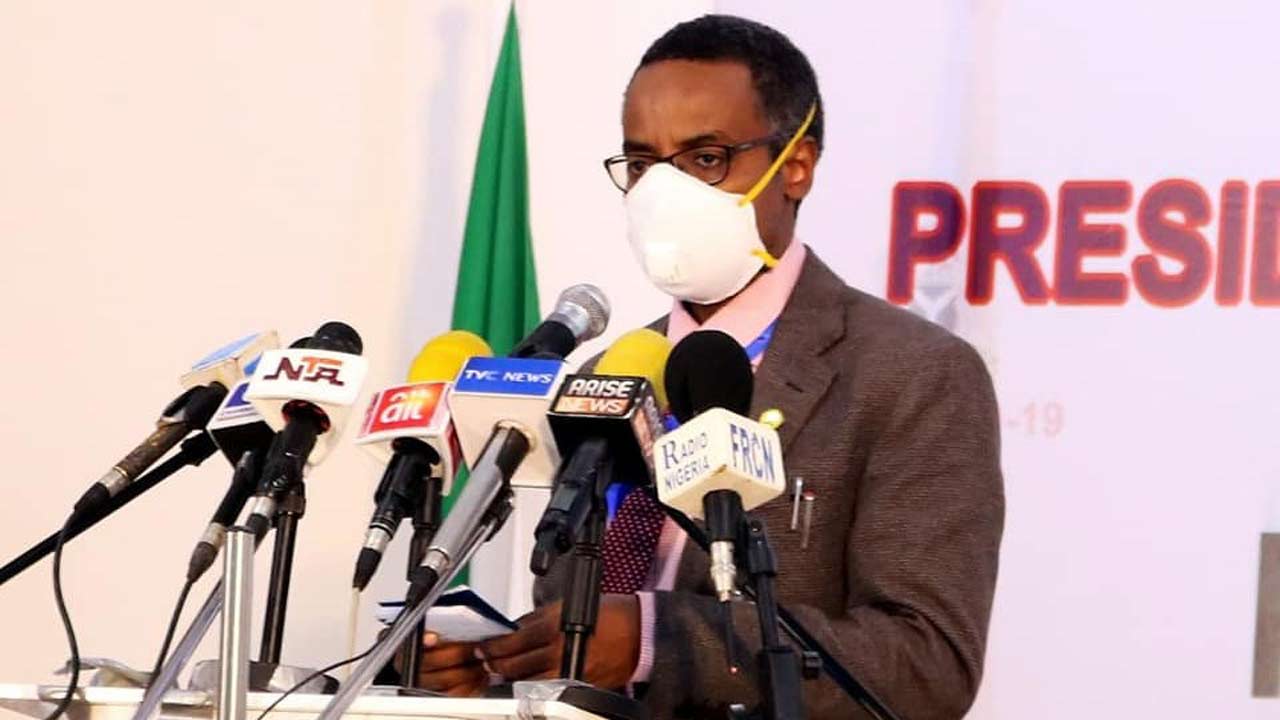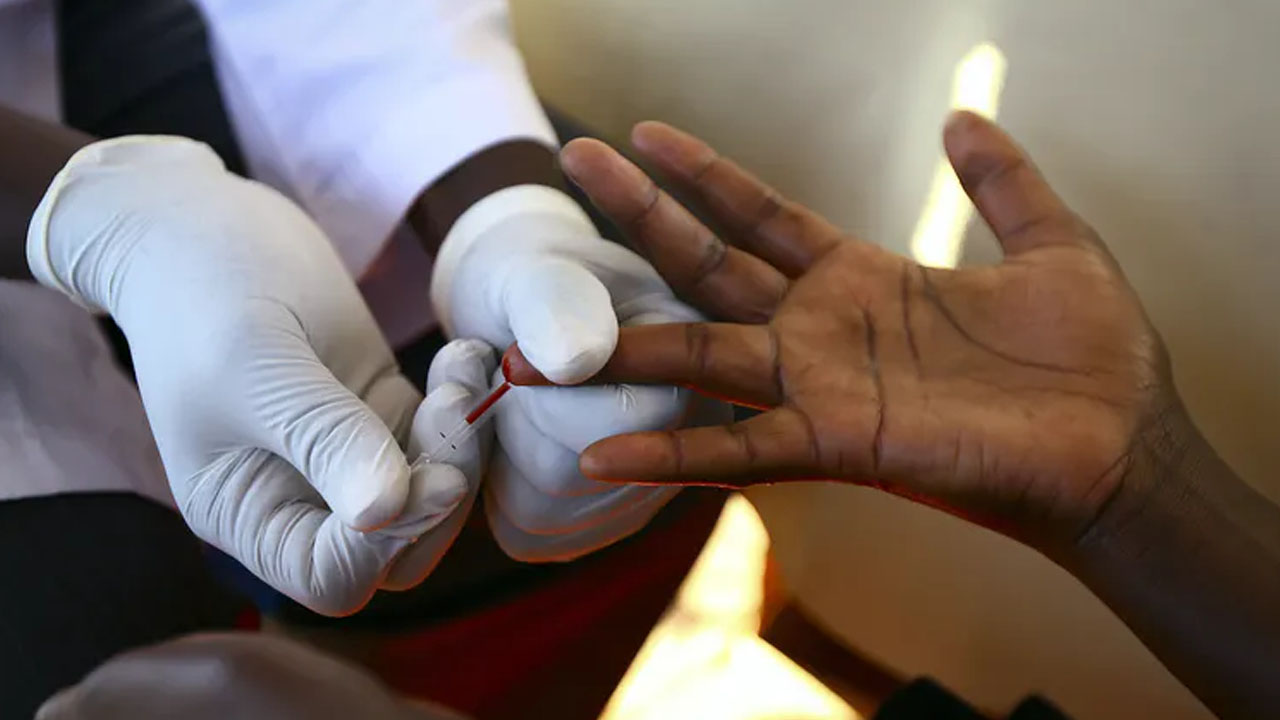
•Two Nigerians selected for CEPI’s Scientific Advisory Committee constituted to develop universal jab against COVID-19, other Betacoronaviruses, create ‘library’ of candidates for use against known, unknown pathogens
Two Nigerians top the list of 34 members of Scientific Advisory Committee set up by the Coalition for Epidemic Preparedness Innovations (CEPI).
They are Executive Director, International Research Center of Excellence, Institute of Human Virology, Prof. Alash’le Abimiku; and Coordinator, Presidential Task Force on COVID-19 and former Director General, National Agency for the Control of AIDS (NACA), Dr. Sani Aliyu.
Comprising thirty-four expert individuals from a broad range of key disciplines—including epidemiology, vaccine development, vaccine manufacturing, public health and regulatory sciences— the group, for the next three-year period, will work as an independent body to provide world-class scientific input and recommendations to guide CEPI staff and the CEPI Board in responding to the current COVID-19 pandemic. They will also deliver guidance and challenge towards CEPI’s US$3.5bn plan, announced in March 2021, to mitigate or even dramatically reduce the threat of future pandemics and epidemics.
CEPI is an innovative partnership between public, private, philanthropic, and civil organisations, launched at Davos in 2017, to develop vaccines against future epidemics. Prior to COVID-19 CEPI’s work focused on developing vaccines against Ebola virus, Lassa virus, Middle East Respiratory Syndrome coronavirus, Nipah virus, Rift Valley Fever virus and Chikungunya virus – it has over 20 vaccine candidates against these pathogens in development. CEPI has also invested in new platform technologies for rapid vaccine development against unknown pathogens (Disease X).
During the current pandemic, CEPI initiated multiple programmes to develop vaccines against SARS-CoV-2 and its variants with a focus on speed, scale and access. These programmes leverage the rapid response platforms previously developed by CEPI’s partners prior to the emergence of COVID-19 as well as new collaborations. The aim is to advance clinical development of a diverse portfolio of safe and effective COVID-19 candidates and to enable fair allocation to these vaccines worldwide through COVAX.
CEPI’s five-year plan lays out a $3.5 billion roadmap to compress vaccine development timelines to 100 days, develop a universal vaccine against COVID-19 and other Betacoronaviruses, and create a “library” of vaccine candidates for use against known and unknown pathogens.
The 2021-2024 CEPI Scientific Advisory Committee includes new members, as well as existing members who have served on the committee since its launch in 2018 and will run an additional two- year term. Additional members may join in the coming months.
Executive Director of the Wits Reproductive Health and HIV Institute of the University of Witwatersrand (South Africa), Helen Rees, will return as Chair of the Scientific Advisory Committee for a one-year term. Michael King, an independent vaccine-manufacturing consultant, has been newly selected as Vice-Chair.
The new members will start in their roles this month, June 2021. Chief Executive Officer (CEO) of CEPI, Dr. Richard Hatchett, said: “On behalf of CEPI and the CEPI Board, I am delighted to welcome our new and returning members to the Scientific Advisory Committee.
“The expert group has already served as a pivotal force in propelling our scientific understanding and insight forward for our priority diseases like Lassa fever, Ebola, and, today, COVID-19. We look forward to working with our new colleagues who, through their scientific flair and creativity, will be instrumental in guiding the world and us forward in our response to epidemic and pandemic disease.
“In selecting our new members, we have created a global forum of voices with diverse scientific and cultural input to build on the lessons of the COVID-19 pandemic and catalyse progress tackling the global health challenges that lie ahead of us. I wish to thank the inaugural members of the Scientific Advisory Committee for their innovation and collaboration in supporting CEPI’s work over the past three years.”
Members of the Scientific Advisory Committee were selected following a call launched by CEPI in January 2021.
Following the call’s closure, CEPI conducted an exhaustive review process of candidates based on expertise, experience, and geographical representation across March and April 2021. The Executive and Investment Committee of the CEPI Board approved all candidates.
CEPI’s Returning Chair of the Scientific Advisory Committee, Helen Rees, said: “Three years ago, the CEPI vision of ‘New vaccines for a safer world’ was on track to develop vaccines for neglected pathogens recognised for the devastation caused to some communities but which were of little interest to commercial developers.
Overnight, in response to the COVID-19 pandemic, CEPI took the lessons learnt in vaccine innovation, platforms and manufacturing and successfully applied them to the deadliest and most disruptive pathogen that the world has seen for a century. This is an organisation that has proved to be fit for purpose for both its initial vision and to respond to a pandemic.”
CEPI’s new Vice-Chair of the Scientific Advisory Committee, Mike King, said: “It is an honor to serve on the CEPI Scientific Advisory Committee with such a distinguished, diverse, and dedicated group of scientists/ leaders focused on improving global human health. The world is fortunate to have CEPI, and the Scientific Advisory Committee serves to increase the impact and effectiveness of CEPI. While CEPI has contributed much to the recent COVID-19 pandemic, we can learn from our recent experience and improve our organizational capability for the next challenge.”
CEPI’s new five-year strategy, running from 2022-2026, sets out ambitious initiatives to build a future world that is better equipped to deal with future epidemic and pandemic threats. Set under the priority areas of prepare, transform, and connect, the plan includes working towards a “moonshot” objective, which seeks to reduce vaccine development timelines by two thirds to 100 days.
As part of the strategy, CEPI is also looking to advance the development of broadly protective Betacoronavirus vaccines, to protect against SARS-CoV-2 variants, other betacoronaviruses, and potentially novel coronaviruses that have yet to emerge.
The Scientific Advisory Committee will play a core role in advising CEPI on the design and implementation of these programmes, while also providing guidance on CEPI’s current portfolio of vaccine candidates and supporting programmes as well as the creation of additional Calls for Proposals to further CEPI’s objectives.
The groups are scheduled to meet on a quarterly basis. Members may also be asked to serve on subcommittees, champion CEPI’s mission among scientific peers and in the public sphere, and, as with the COVID-19 pandemic, take part in bespoke meetings to share knowledge and provide guidance in response to current outbreaks.
The Scientific Advisory Committee is an independent advisory body that provides scientific support, advice, and guidance to CEPI staff and the CEPI Board. Final decision-making about the issues addressed by the committee rests with CEPI staff or the CEPI Board.
The inaugural 2018-2021 CEPI Scientific Advisory Committee previously listed members as ‘Voting Members’ or ‘Non-Voting Members’. As the Scientific Advisory Committee is solely an advisory body with no voting rights, this distinction has been removed for the 2021-2024 group.
Members’ conflicts of interest will be monitored and addressed very closely. Potential conflicts of interest will be managed in accordance with CEPI’s Conflict of Interest policy. Any member with a conflict of interest related to a specific issue shall be excluded from discussion on the issue and shall not receive any documents relating to the issue, giving rise to the conflict.






